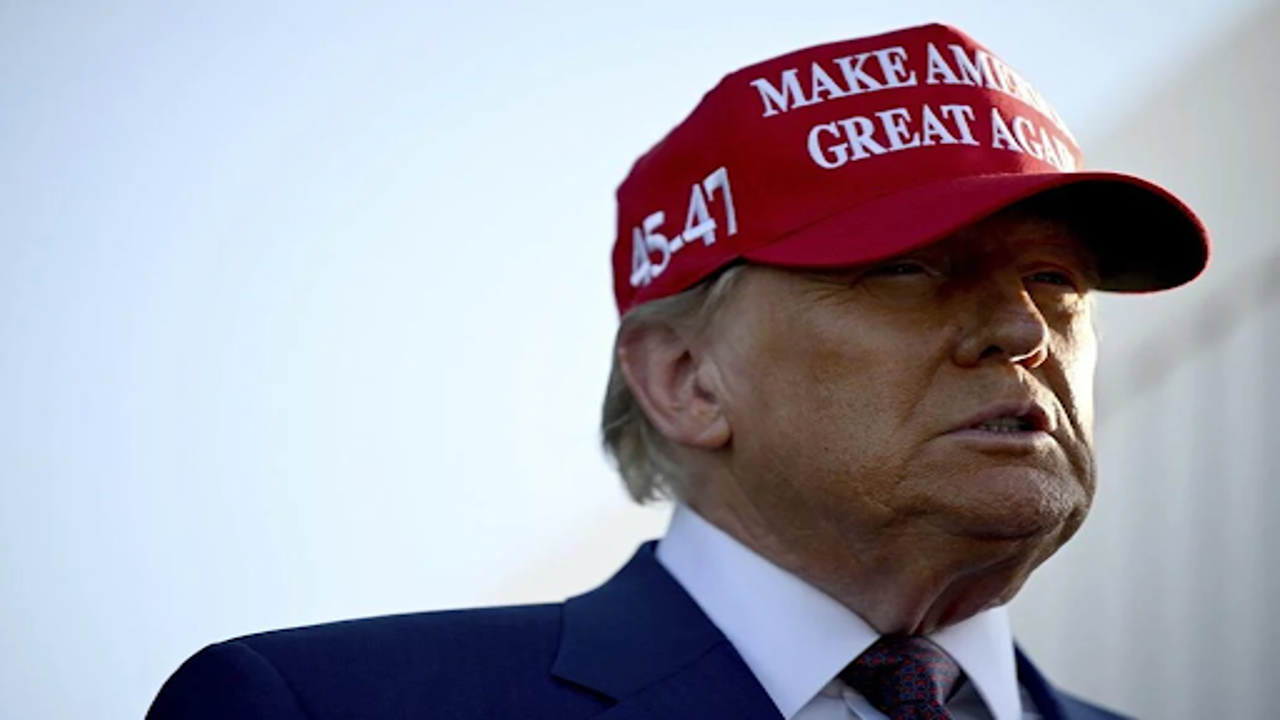
President-elect Donald Trump arrives before the launch of the sixth test flight of the SpaceX Starship rocket Tuesday, Nov. 19, 2024 in Boca Chica, Texas. (Brandon Bell/Pool via AP)
WASHINGTON – Former U.S. President Donald Trump announced plans to impose a 25% tariff on all imports from Canada and Mexico if he returns to the White House. The proposal, shared on Truth Social on Monday, is intended as a response to drug trafficking and illegal border crossings, which Trump claims are at unprecedented levels.
Trump pledged to sign the executive order on his first day back in office, January 20, 2025, saying the tariff would remain until both countries "stop the flow of drugs, particularly fentanyl, and people crossing the borders illegally." He warned Canada and Mexico would “pay a very big price” until these issues are addressed.
Canadian Leaders React to Tariff Threat
Canadian officials were quick to respond, emphasizing the importance of strong trade and border relationships. Deputy Prime Minister Chrystia Freeland and Public Safety Minister Dominic LeBlanc released a joint statement affirming Canada’s commitment to border security and ongoing dialogue with the U.S.
“Canada places the highest priority on the security and integrity of our shared border,” the statement said.
However, provincial leaders expressed alarm. Ontario Premier Doug Ford warned the tariff would devastate jobs and economies on both sides of the border. “The federal government must take the situation seriously,” Ford posted on social media. Alberta Premier Danielle Smith echoed the concern, urging Ottawa to prioritize the partnership with the U.S. British Columbia Premier David Eby and Quebec Premier François Legault also called for strong federal action to avoid the tariffs.
NDP Leader Jagmeet Singh criticized Prime Minister Justin Trudeau, urging him to take a more aggressive stance. “Stand up and fight like hell. Canadian jobs are on the line,” Singh posted.
Canada’s premiers also requested an emergency meeting with Trudeau to address the potential fallout.
Economic Impacts Loom Large
Economists and trade experts are raising alarms about the economic consequences of Trump’s proposed tariffs. The Canadian Chamber of Commerce estimated that even a 10% tariff could shrink Canada’s economy by $30 billion. With more than 77% of Canadian exports destined for the U.S., the stakes are high.
Eric Miller, president of the Rideau Potomac Strategy Group, described the situation as “extraordinarily concerning.” He warned the tariffs would disrupt supply chains, particularly in the auto and energy sectors, and damage investor confidence in Canada.
Carlo Dade of the Canada West Foundation said Trump’s strategy appears aimed at pressuring Canada and Mexico ahead of the 2026 review of the Canada-U.S.-Mexico Agreement (CUSMA). He likened it to a tactic of making an example of close allies to send a message globally.
Border Security and Immigration in Focus
Immigration and border security were central issues during the U.S. election. Although illegal crossings from Canada represent only a small fraction of total border encounters, recent increases have drawn Republican attention. U.S. Border Patrol recorded three million encounters in the 2024 fiscal year, with just 7% involving Canada. Fentanyl seizures from the northern border totaled 45 pounds compared to 20,000 pounds at the southern border.
Laura Dawson, an expert on Canada-U.S. relations, suggested the proposed tariffs might serve as leverage in trade negotiations. While she expects the tariffs could be short-lived or negotiated down, she warned their implementation would harm Canada’s reputation as a stable place to invest.
“If these tariffs are imposed, even briefly, they’ll leave a lasting mark on Canada’s economic image,” Dawson said.















